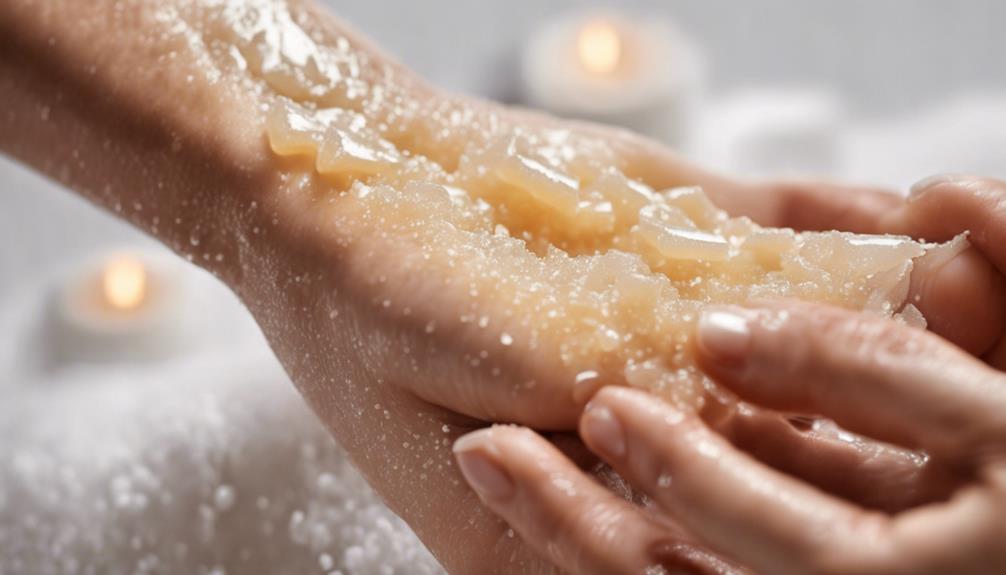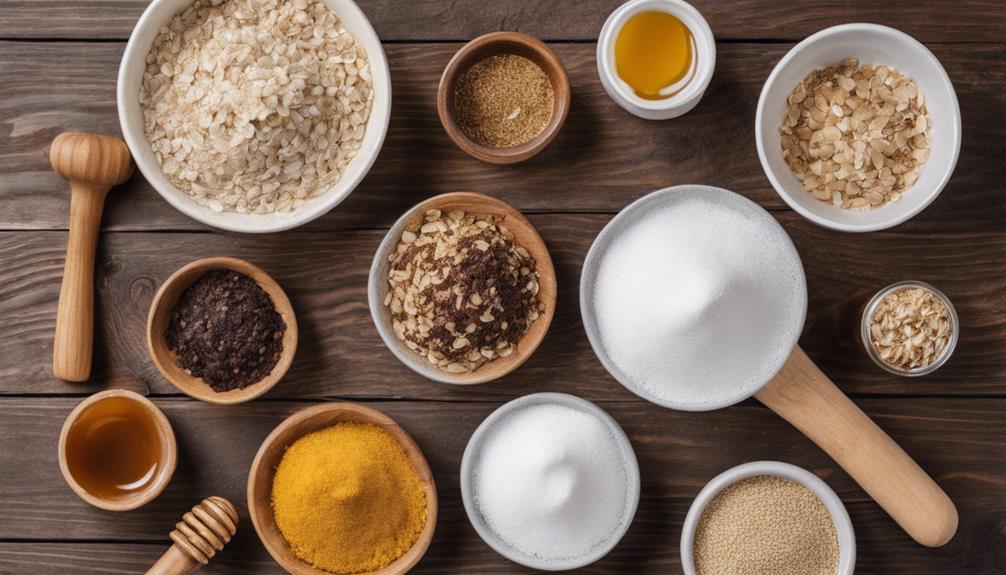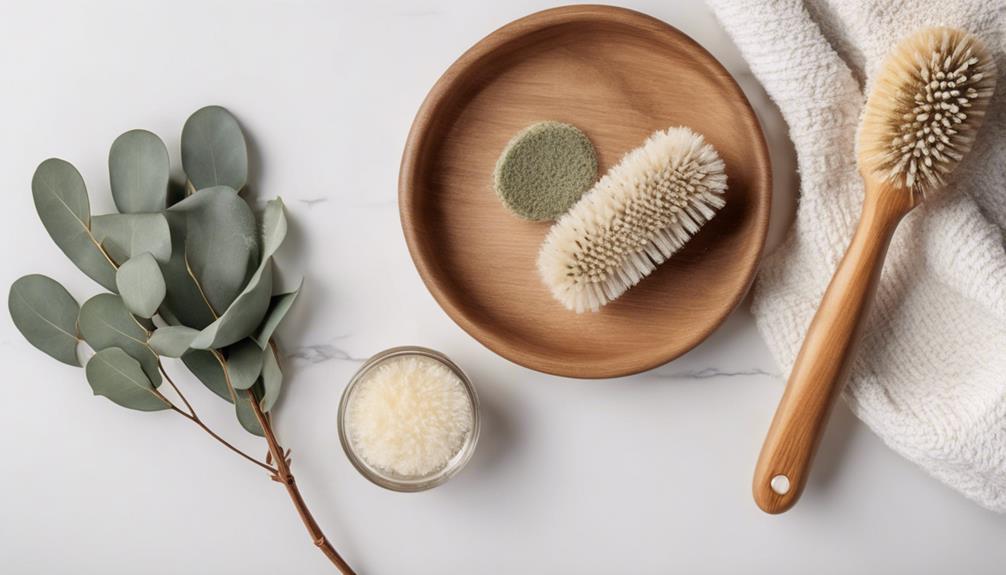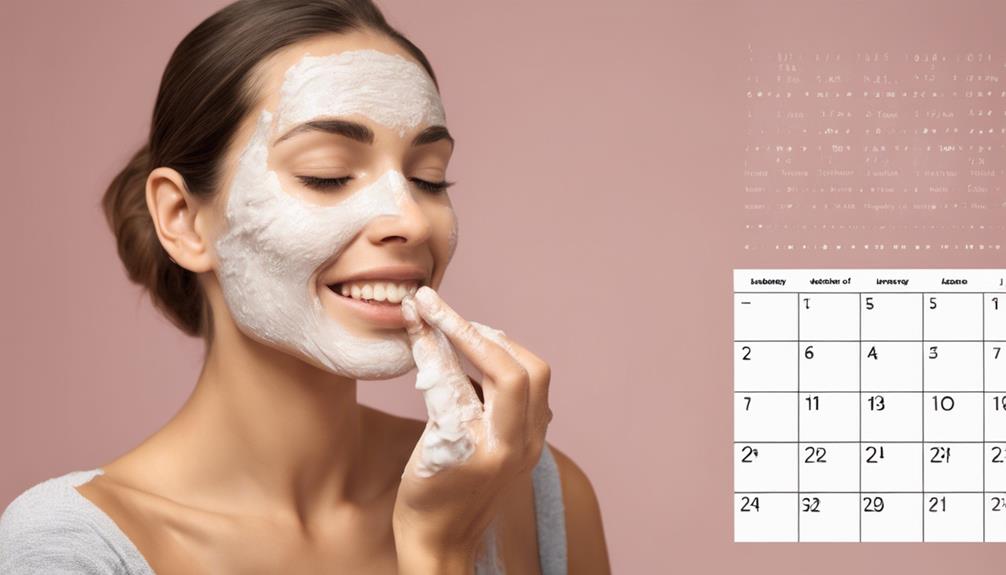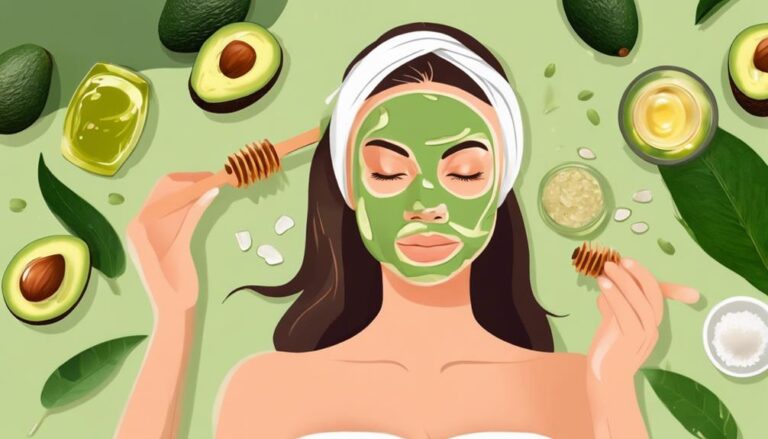How to Exfoliate Your Skin at Home: DIY Beauty Tricks
For a budget-friendly and effective approach to achieving smoother skin, exfoliating at home with DIY beauty tricks can be a game-changer. By utilizing common household ingredients, you can create customized exfoliants tailored to your skin's needs. The process is simple, but the results can be impressive, leaving you with a glowing complexion. So, how exactly can you master the art of at-home exfoliation and unveil your skin's natural radiance?
Benefits of Exfoliation
Exfoliating your skin regularly offers numerous benefits that contribute to healthier, glowing skin. By engaging in proper exfoliation techniques, you can stimulate skin renewal, promoting a smoother and more radiant complexion. This process involves the removal of dead skin cells, allowing new, fresh skin to surface.
Through gentle exfoliation, you can unclog pores, prevent breakouts, and even out your skin tone.
Using exfoliation techniques correctly can enhance the effectiveness of your skincare products, as they can penetrate deeper into the skin after exfoliation. Additionally, exfoliating can improve blood circulation, giving your skin a natural, healthy glow.
Regular exfoliation also aids in the reduction of fine lines and wrinkles, promoting a more youthful appearance.
Incorporating exfoliation into your skincare routine is a simple yet powerful way to achieve smoother, brighter skin. Remember, consistency is key when it comes to reaping the benefits of skin renewal through exfoliation.
Types of Exfoliants
When it comes to maintaining optimal skin health, understanding the different types of exfoliants available is crucial. Two main categories of exfoliants are natural exfoliants and chemical exfoliants.
Natural exfoliants, such as sugar, salt, or oatmeal, work by physically removing dead skin cells through gentle abrasion. On the other hand, chemical exfoliants contain ingredients like alpha-hydroxy acids (AHAs) or beta-hydroxy acids (BHAs) that dissolve the bonds holding dead skin cells together, promoting a smoother complexion.
Within these categories, there are specific types of exfoliants to consider.
- Physical scrubs, like those containing microbeads or finely ground particles, provide a more intense exfoliation suitable for tougher skin types.
- Alternatively, enzyme peels use natural enzymes to break down dead skin cells, making them a gentler option for sensitive skin.
Understanding your skin type and concerns can help you choose the right exfoliant to achieve the best results.
DIY Exfoliating Scrubs
To create effective DIY exfoliating scrubs at home, it's essential to choose ingredients that suit your skin type and exfoliation needs. Natural ingredients are key when preparing homemade recipes for exfoliating scrubs.
For oily or acne-prone skin, ingredients like ground coffee, sugar, or sea salt can help unclog pores and remove dead skin cells. These ingredients also have antibacterial properties that can benefit problematic skin.
If you have sensitive skin, opt for gentler exfoliants like oatmeal, almond meal, or finely ground coconut. These natural ingredients provide a softer exfoliation while soothing and hydrating the skin.
When making your DIY exfoliating scrub, remember to mix the ingredients well to ensure a uniform texture. Avoid harsh scrubbing, especially if you have sensitive skin, as it can cause irritation. Apply the scrub using gentle circular motions and rinse off with lukewarm water.
Regular use of these homemade exfoliating scrubs can help reveal smoother, brighter skin without the need for harsh chemicals.
Exfoliating Masks
For a deeper exfoliation experience that goes beyond DIY scrubs, consider incorporating exfoliating masks into your skincare routine. Exfoliating masks are a fantastic way to rejuvenate your skin, unclog pores, and reveal a brighter complexion. These masks are often formulated with natural ingredients that provide gentle yet effective exfoliation.
Exfoliating Mask Options
| Mask Type | Key Ingredients |
|---|---|
| Clay Masks | Bentonite, Kaolin |
| Enzyme Masks | Pineapple, Papaya |
| Physical Masks | Ground Walnut, Oatmeal |
| Chemical Masks | AHAs, BHAs |
When applying exfoliating masks, ensure your skin is clean and dry. Use gentle, circular motions to spread the mask evenly, avoiding the delicate eye area. Follow the recommended time for the mask to work its magic before rinsing off with lukewarm water. By incorporating exfoliating masks with natural ingredients and proper application techniques into your skincare routine, you can achieve smoother, more radiant skin.
Exfoliating Tools at Home
Consider enhancing your exfoliation routine by incorporating effective tools into your skincare regimen. Here are some tools that can elevate your at-home exfoliation game:
- Exfoliating Gloves: These gloves are designed to buff away dead skin cells gently. They provide a textured surface that helps to slough off dry and rough skin, leaving your skin feeling smoother and more radiant. When using exfoliating gloves, remember to be gentle and use circular motions to avoid irritation.
- Facial Brushes: Facial brushes are excellent tools for a deeper exfoliation. They come in various bristle types, such as silicone or natural fibers. These brushes can help unclog pores, remove impurities, and improve blood circulation in the skin. When using a facial brush, ensure it's clean and replaceable heads are changed regularly to prevent the buildup of bacteria.
Incorporating these tools into your skincare routine can enhance the effectiveness of your exfoliation, revealing healthier and glowing skin.
Best Practices for Exfoliation
Implementing proper exfoliation techniques is essential for maintaining healthy and radiant skin. When exfoliating at home, it's crucial to choose the right exfoliant for your skin type.
Physical exfoliants like scrubs can be effective, but be gentle to avoid irritation. Chemical exfoliants containing acids like glycolic or salicylic acid work well for many skin types, but always do a patch test first. Remember to apply sunscreen after exfoliating, as your skin may be more sensitive to UV rays.
To get the best results, exfoliate in gentle, circular motions, focusing on areas prone to dryness or roughness. Avoid over-exfoliating, as this can damage the skin barrier and lead to irritation. Exfoliation can be done 1-3 times a week, depending on your skin's needs.
Always follow up with a hydrating moisturizer to replenish lost moisture and keep your skin glowing. By following these exfoliation techniques and skin care tips, you can achieve smoother, healthier-looking skin right at home.
Exfoliation Frequency
When determining the ideal exfoliation frequency for your skin, it's essential to consider your skin type and individual needs. Over-exfoliation can damage your skin, while not exfoliating enough can lead to a dull complexion. Here are some common myths and mistakes to avoid when it comes to exfoliation:
- Exfoliation Myths:
- Myth: Exfoliating every day is better for your skin.
- Truth: Over-exfoliating can strip your skin of essential oils and lead to irritation.
- Exfoliation Mistakes:
- Mistake: Using harsh physical exfoliants too frequently.
- Solution: Opt for gentler exfoliation methods like chemical exfoliants for a more balanced approach.
- Exfoliation Frequency Tips:
- Consider exfoliating 1-3 times a week for normal skin.
- Sensitive skin may benefit from exfoliating once a week.
- Oily skin types might find exfoliating 2-3 times a week more beneficial.
Post-Exfoliation Skincare Routine
To maximize the benefits of exfoliation and maintain healthy skin, establishing a proper post-exfoliation skincare routine is crucial. After exfoliating, your skin is more receptive to treatment, making it the perfect time to apply moisturizing products.
Opt for gentle, hydrating creams or serums to replenish moisture and soothe the skin. Look for ingredients like hyaluronic acid or ceramides to lock in hydration and restore the skin's natural barrier.
In addition to moisturizing, don't forget the importance of sun protection in your post-exfoliation routine. Exfoliation can make your skin more sensitive to the sun, increasing the risk of sun damage and premature aging.
Always apply a broad-spectrum sunscreen with an SPF of 30 or higher before heading out, even on cloudy days. Consider using a moisturizer with built-in sun protection for added convenience.
Frequently Asked Questions
Can I Exfoliate My Skin if I Have Sensitive Skin?
Yes, you can exfoliate your skin if you have sensitive skin. Opt for gentle exfoliation methods like using a soft washcloth or mild exfoliating scrubs specifically designed for sensitive skin. Look for products with gentle ingredients for best results.
How Soon Can I Apply Makeup After Exfoliating?
After exfoliation, wait 10-15 minutes before applying makeup to let your skin recover and prevent irritation. This allows post-exfoliation skincare products to penetrate effectively. Timing is crucial for a flawless makeup application and healthy skin.
Is It Safe to Exfoliate Skin With Acne Breakouts?
When dealing with acne breakouts, exfoliating with caution is key. Be gentle to avoid irritating the skin further. Opt for exfoliants designed for sensitive skin or consult a dermatologist for personalized recommendations.
Can I Use Body Exfoliants on My Face?
Absolutely avoid using body exfoliants on your face. Face specific exfoliants offer gentle care for delicate skin. Explore different exfoliating techniques like chemical exfoliation or gentle scrubs to maintain a healthy facial glow without causing irritation.
How Can I Tell if I Am Over-Exfoliating My Skin?
If your skin feels extra sensitive, looks red or irritated, or is flaky and dry, these are signs of over-exfoliating. Adjust your routine by reducing frequency and using gentler products to prevent further damage.
Conclusion
In just a few simple steps, you can achieve smoother, glowing skin right in the comfort of your own home. By incorporating DIY exfoliating scrubs and masks into your skincare routine, you can experience the benefits of exfoliation firsthand. Remember to exfoliate gently and follow up with a moisturizer to keep your skin healthy and radiant. Embrace the power of natural ingredients and self-care to reveal your best skin yet.

